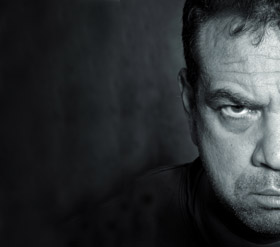FREEMANSPERSPECTIVE

If I happen to be near Jay’s bar on a Tuesday afternoon, I try to stop in. That’s when my friends from the cypherpunk days are likely to be there. We always had meetings in Jay’s back room at 6:30 on Tuesdays (though most of us got their earlier). We had Ethernet cables, good Internet connections (for the time), and a private place to talk.
Last Tuesday, I stopped by and sat at the bar to talk to Jay. I don’t actually drink very much, so I ordered my usual, a tonic and lime. Jay’s getting older and slower these days, but he’s still grumpy and kind-hearted at the same time. It’s an odd but endearing mix.
Anyway, as Jay and I discussed our families, I saw a guy from the old days walk in. And honestly, I rather dreaded seeing him. This guy, James, was all-complaint, all the time. After a while, I avoided him. He was smart and very well read, but he always talked about what other people were doing wrong.
But, it had been a lot of years, so I walked over and said hello. I soon found out that James hadn’t really changed.
Instead of running networks and living in an old, dark apartment, he was now working in a finance company and living in the suburbs. He had actually been married for a year or two, but that didn’t work out.
I offered my condolences on the marriage and tried to move toward happy subjects, but I got no farther than mentioning how excited I was about Bitcoin. Before I could start a second sentence, he was telling me about attacks that could be made on Bitcoin, flaws with the mining process and how Satoshi (the original architect) should have written the program.
“Yes,” I said, “a lot of that is true, but the Bitcoin economy includes ten thousand bright, young, motivated people – adaptive people – and that’s a very powerful thing.”
James wasn’t impressed. He went on to describe, in intricate detail, why the philosophy underlying Bitcoin wasn’t quite right. I was ready to write the guy off permanently and leave, when he excused himself and went to the bathroom.
Jay walked over. “The guy talks too much, eh?”
“Yeah, Jay, and always a long list of complaints.”
“Yeah, I see guys like him sometimes. All talk and no do.” James was returning and Jay moved away, wiping the bar. And then I realized what James had made himself: the purity police, a Soviet style political officer.
He could and would tell you where everyone else was missing it, but Jay was right – he was all talk and no do. The truth was, he didn’t have the courage to act. He never took any risks and never acted in the real, physical world.
James substituted talking for doing. And to prove himself potent, he painted himself as a righteous avenger. He appointed himself to the job of certifying who was technically correct, libertarian enough and rational enough.
So, rather than giving this guy a chance to point out everyone’s flaws, I started asking questions about his life: friends, family, and so on.
What I learned was tragic. This guy had alienated nearly everyone in his life, except his now-elderly mother. He was living alone, unhappy in his miserable but stable job. I stopped inquiring. The guy is a downer, but by bringing up the topics, I was causing him pain for no payoff. I said that I needed to go and headed out, waving at Jay as I went.
I thought about James all the way home. This guy had loads of talent. He could have done any number of things and had a rewarding life, but he never did. Instead, he spends his evenings on Internet chat boards, exposing every flaw he can find (or imagine) in other people’s work.
Honestly, I wish I had understood the problem when we were young – I could have pushed him to do things – small things first, then bigger things once he had built up some courage.
Being able to discern right and wrong is important but only as a precursor to action.
Acting changes us in crucial ways, and this guy never tasted that. Instead, he stagnated and became bitter.
Rather than gathering the courage to take a risk and act – for something good, for anything good – James became a political officer, the purity police. And he was ruined by it.
So pick your spot, my friends, and then act. Start small if you want, but break your inertia and take action.
I don’t even mind people acting wrongly at first, because once they’re actually doing something, their direction can be corrected. But the person who never breaks their inertia – who never stands up and acts – he or she degrades.
There is magic in doing. There’s none in endless talking.
[Editor’s Note: Paul Rosenberg is the outside-the-Matrix author of FreemansPerspective.com, a site dedicated to economic freedom, personal independence and privacy. He is also the author of The Great Calendar, a report that breaks down our complex world into an easy-to-understand model. Click here to get your free copy.]


